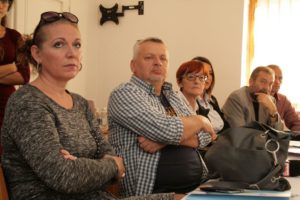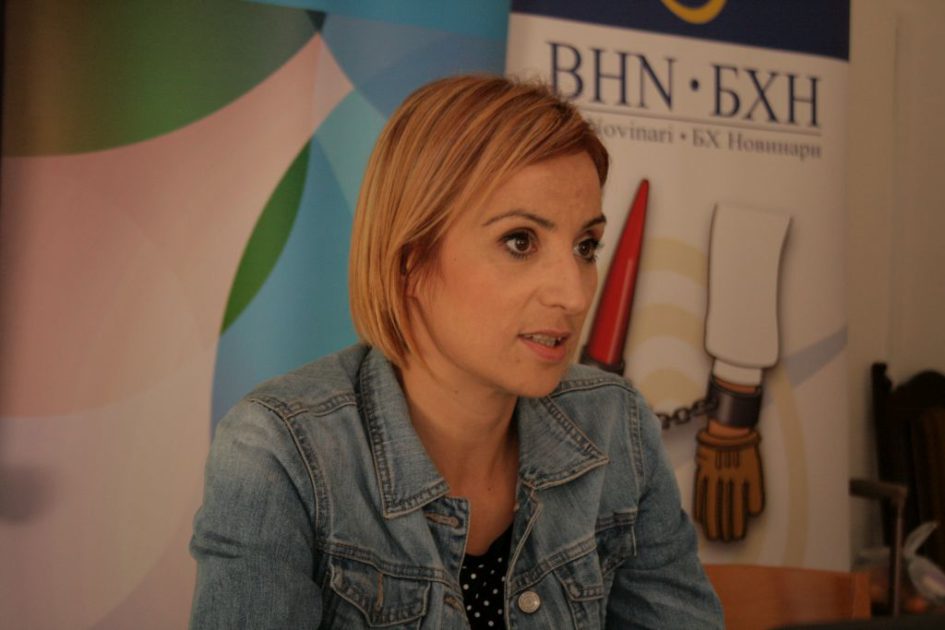BRČKO, 20.10.2017. – How to prepare for a journalistic interview with a person who survived violence, to reject prejudices and to avoid an emotional and unprofessional approach, and what are the problems in court proceedings in cases of gender-based violence were some of the issues discussed at today’s workshop “Reporting on the theme of gender-based violence “that was held in Brčko.
 Ljiljana Zurovac, Executive Director of the Press Council, spoke about the journalistic approach to reporting on the topic of gender-based violence, in particular on the preparation for a journalist interview with women or girls who survived violence.
Ljiljana Zurovac, Executive Director of the Press Council, spoke about the journalistic approach to reporting on the topic of gender-based violence, in particular on the preparation for a journalist interview with women or girls who survived violence.
“Talking to a person who has survived violence requires a tailored journalistic approach, different from the approach used with others. It is not easy to work with the victims of violence because the interview can lead journalists in an unfortunate situation, “explains Zurovac, adding that it is important for the journalist to remain neutral, reject all prejudices and be able to make a report, and at the same time deal with the topic means not to give up emotional states or to ignore journalistic issues. ”

Gorica Ivić, Fondacija “Udružene žene”
Gorica Ivić from the “United Women” Foundation in Banja Luka pointed out the problem that arises in court proceedings, in which the woman who survived the violence with her testimony is the only evidence in cases of gender-based violence. “The police do not collect evidence because it involves special investigative actions. The moment a woman gives up her testimony – the case no longer exists, “Ivic said. “United Women” in Brcko work on the creation and adoption of the Protocol on Mutual Cooperation with the aim of preventing and protecting against violence.

One-day training for journalists, editors and bloggers gathered participants and participants from media outlets and non-governmental organizations from Brcko Srebrenik, Banja Luka and Doboj, as well as representatives of the Brcko District Government and Police.








